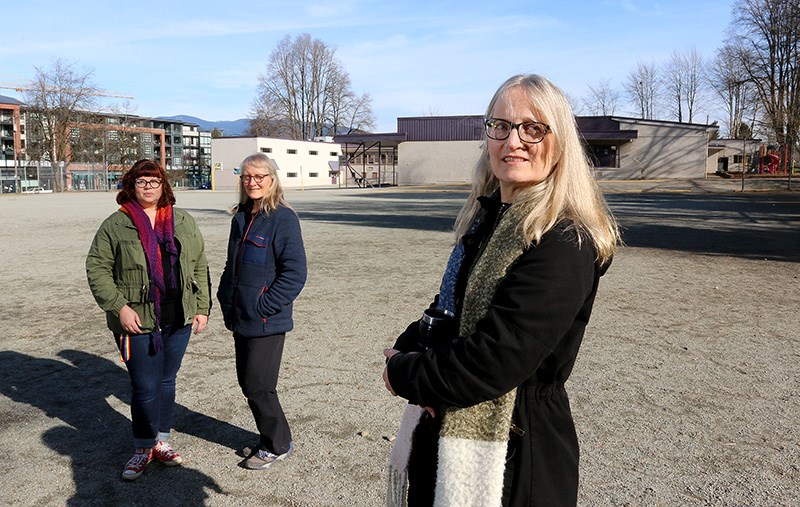Port Moody council is taking up the cause of a daycare operator who says her kids feel like “second-class citizens” because of restrictions that have been imposed upon their use of the playground at Moody elementary school.
Mayor Rob Vagramov said council will bring the matter to a joint meeting with School District 43 representatives because of “the ridiculousness of having open spaces and kids not having access to them” after Danita Sepp, who runs Block 8 Academy at Moody and St. Johns streets, pleaded her case before council's committee of the whole Feb. 18.
Sepp, who opened the daycare in 2016 at the Port Moody Arts Centre, then was forced to move last June, said the 55 kids in her before- and after-school care programs are suffering because of a shifting set of rules regarding her access to the school’s field and playground just across the street.
Those rules, she said, restrict her young charges to a remote, barren section of the field, away from playground equipment, basketball hoops, an area of covered blacktop that provides shelter on rainy days and, most importantly, their friends who also attend Moody elementary but aren’t in after-school care.
But Chris Nicolls, the chief financial officer and secretary-treasurer of SD43, said it’s necessary to separate out the kids in after-school care following dismissal until 4 p.m. so school administrators can distinguish who’s being picked up by a parent and who is being supervised by a caregiver.
“Creating a time and space separation allows for increased certainty that no child has been overlooked and is uncared for, which has occurred in the past,” Nicolls told The Tri-City News.
Sepp said she has tried to assuage those concerns by outfitting her kids with colourful pinnies so they stand apart. But, more importantly, she said, the conflict illustrates a growing challenge for daycares trying to address the increasing need for their services in urban environments that are short on available, affordable outdoor space.
School fields and playgrounds are just such spaces, Sepp said.
“This is a community issue,” she said, adding her fees would become out of reach to parents if she also had to pay for outdoor property for the exclusive use of her kids for just an hour or so a day.
Armed with data collected by Simon Fraser University students she said she enlisted to observe field and playground use at Moody elementary for a week, Sepp said communities need a cohesive strategy governing the public use of public play spaces.
Coun. Diana Dilworth said the best interests of children should be foremost while Coun. Meghan Lahti suggested communities across B.C. could do more to ensure public policy around the use of school grounds “is in the best interests of the community.”
Coun. Zoe Royer added the city could pool its resources with the school district to “maximize the use of playgrounds.”
Nicolls said school grounds and facilities must be restricted for school use between 7 a.m. and 6 p.m. to ensure they’re safe and secure while school is in session. He added allowances are made, usually for childcare providers with a licence to occupy school property.
“We want school grounds and facilities to be available for the use of students that are attending school during school hours as part of a full and robust educational system,” he said, adding a task force the school district has established with municipalities continues to study the demands for child care and outdoor spaces in an urban environment.
Sepp said she hopes that discussion can be open and productive, “otherwise daycares will struggle and the kids will lose.”



